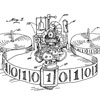Logic Seminar
All three foundational pillars on which Epistemic Logic rests: modal language, Kripke-style semantics, and proof theory need modernization.1. Modal language does not support such central topics in Epistemology as knowledge vs. justi ed true belief discussion initiated by Plato, due to a 1. lack of justification objects. We discuss some paradigmatic epistemic situations which require reasoning with justifications.
2. Kripke semantics of possible worlds for epistemic logic is based on a hidden assumption of common knowledge of the model, CKM, manifested in the condition if a sentence is valid at all possible states, then it is known." Since agents may possess only partial knowledge of the situation, CKM assumption is quite restricting. We introduce epistemic models which do not rely on CKM. Conceptually, such general epistemic models can be viewed as observable fragments of Kripke models.
3. A well-principled notion of epistemic theory as an axiomatic description of a given scenario is conspicuously absent. Moreover, given a verbal description of a situation, a typical epistemic user cherry-picks a natural model" and regards it as a formalization of the original description. Such a simple-minded approach can formalize only logically complete scenarios whereas some/most social situations are only partially specified. We describe a framework of supertheories for epistemic reasoning with partial information in the possible world environment. Remarkably, natural semantic counterparts of supertheories are epistemic models from (2), rather than Kripke models.
